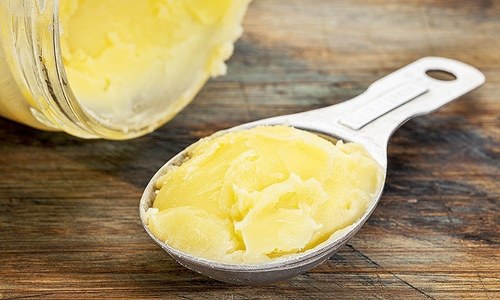ISLAMABAD: The Supreme Court on Monday suspended the Islamabad High Court’s September 14 order quashing an inquiry initiated by the Competition Commission of Pakistan (CCP) into the spike in prices of cooking oil and ghee in 2020.
A three-judge SC bench, headed by Justice Umar Ata Bandial, suspended the IHC order after granting leave to appeal moved by the CCP and its inquiry officers through senior counsel Faisal Siddiqui against Dalda Foods (Pvt) Ltd, seeking to set aside the high court’s decision.
The inquiry was initiated under the Competition Act of 2010 against a number of manufactures of ghee and cooking oil in view of the hike in their prices. Subsequently, Dalda Foods Ltd had challenged it in the IHC which set aside different letters and orders issued by the CCP for information as well as the inquiry initiated against the cooking oil manufacturer.
The CCP appeal argued that the commission was a watchdog body established under Section 12 of the Competition Act with the purpose of ensuring free competition in all spheres of commercial and economic activity and protecting the consumers from anti-competitive behaviour.
On a complaint on the Prime Minister Citizen’s Complaint Portal, the National Price Monitoring Committee (NPMC) held a meeting on May 20 last year to deliberate on the prices of essential items and their supply position and suggested to the CCP to check anti-competitive practices by taking into consideration the international commodity prices.
Moreover, the Ministry of Industries and Productions had also brought to the notice of the CCP complaints against non-reduction in prices of ghee and cooking oil through a letter on June 8, 2020 as well as the complaint on the citizen’s portal on the issue, stating that the commission had the mandate to intervene in such situations and initiate suo motu action under Section 37 of the Competition Act.
Subsequently, the CCP through July 13, 2020 letters sought information from different manufacturers, including Dalda Foods, about the alleged excessive pricing of Vanaspati ghee in the market.
The appeal stated that Dalda Foods through a July 21 reply did not cooperate and sought to delay the issue though other entities like the All Pakistan Solvent Extractors’ Association, Pakistan Vanaspati Manufacturers’ Association, Rawat Oil and Ghee Mills (Pvt) Ltd, Pardhan Oil Industries (Pvt) Limited, Bilour Industries (Pvt) Limited, Chashma Ghee Mills (Pvt) Limited, Golden Oil Products, Mujahid Oil Refinery Limited, Platinum Argo, Taj Vegetable Oil Processing Unit (Pvt) Limited, Hafeez Iqbal Oil and Ghee Industries (Pvt) Limited, Associated Industries Limited, Punjab Oil Mills Limited, Fahad Hammad Oil and Ghee Industries and Khadija Edible Oil Refinery (Pvt) Limited had provided the requisite information.
The appeal explained that after the collection of certain basic data in the context of alleged violations of the Competition Act, a preliminary/tentative opinion was formed by the CCP and the inquiry was initiated on its own under Section 37(1) into the price hike in relation to alleged violations of Sections 3 and 4 of the Act. Thus the inquiry was neither arbitrary nor non-transparent but was strictly in accordance with Section 37(1) of the Competition Act, it contended.
Dalda Foods had approached the high court which, according to the appeal, stayed the inquiry on November 18, 2020. The IHC later allowed the petition by highlighting what were the prerequisites for exercise of authority by the CCP to order an inquiry under Section 37 of the Competition Act and whether a division of the federal government or the NPMC had the authority under the Competition Act to direct the CCP to initiate regulatory action on the basis that in its opinion a fall in international prices of a commodity had not translated into reduction in domestic prices of such a commodity.
The CCP appeal argued that the high court had wrongly held that the inquiry was only concerned with a mere price increase without any application of the mind as to how such a price hike was linked with violation of Sections 3 and 4 of the Competition Act. The court had further erroneously held that based on the American jurisprudence, no such inquiry can be initiated without the presence of ‘plus factors’ i.e. price fixing conspiracy, defendant acting contrary to his own interests and evidence implying a traditional conspiracy, the appeal contended.
Published in Dawn, November 23rd, 2021

















































